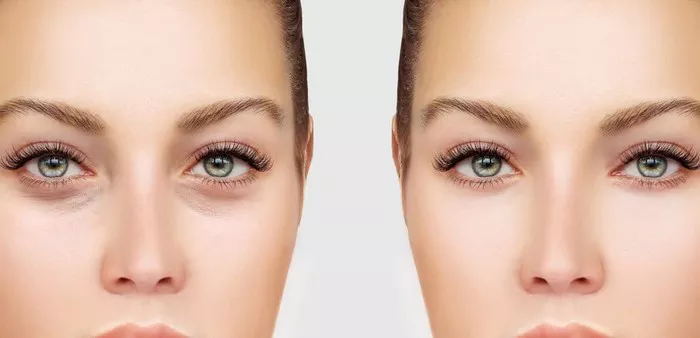Eye bags, also known as periorbital puffiness, are a common cosmetic concern for many people. They are characterized by swollen, puffy, or darkened areas under the eyes, which can make individuals look tired, aged, or unhealthy. While there are many factors that can contribute to the development of eye bags, such as genetics, allergies, or lifestyle habits, some people believe that sleeping early can help get rid of them. In this article, we will explore the relationship between sleep and eye bags, and whether or not sleeping early can help get rid of them.
What Causes Eye Bags?
Before we delve into the relationship between sleep and eye bags, it is important to understand what causes them in the first place. Eye bags can be caused by a variety of factors, including:
Genetics: Some people are more prone to developing eye bags due to their genetic makeup. This is because the skin under the eyes may be thinner or more delicate, which can make it more susceptible to swelling or puffiness.
Aging: As we age, the skin under our eyes may become thinner and lose elasticity. This can cause the fat pads under the eyes to protrude, creating a puffy or swollen appearance.
Allergies: Allergies can cause inflammation and swelling in the body, including in the area under the eyes. This can lead to the development of eye bags.
Lifestyle Habits: Lifestyle habits such as smoking, excessive alcohol consumption, or a diet high in salt can contribute to the development of eye bags.
Lack of Sleep: Lack of sleep can cause fluid to accumulate under the eyes, leading to puffiness and swelling.
The Relationship Between Sleep and Eye Bags
While lack of sleep is often cited as a contributing factor to the development of eye bags, the relationship between sleep and eye bags is not straightforward. While getting enough sleep is important for overall health and wellbeing, it may not necessarily help get rid of eye bags.
One study published in the Journal of Cosmetic Dermatology found that sleep quality was not significantly associated with the development of eye bags. However, the study did find that individuals who slept for longer periods of time were less likely to have eye bags.
Another study published in the Journal of Clinical Sleep Medicine found that sleep deprivation can lead to increased fluid retention in the body, including in the area under the eyes. This can contribute to the development of eye bags.
While these studies suggest that sleep may play a role in the development of eye bags, the relationship between the two is complex and multifactorial. Other factors such as genetics, aging, and lifestyle habits may also contribute to the development of eye bags.
Can Sleeping Early Get Rid of Eye Bags?
While sleeping early may not necessarily get rid of eye bags, it can help prevent them from developing in the first place. Getting enough sleep is important for overall health and wellbeing, and can help reduce the risk of developing eye bags.
Additionally, there are other lifestyle habits that can help prevent or reduce the appearance of eye bags. These include:
Drinking plenty of water: Staying hydrated can help reduce fluid retention in the body, which can contribute to the development of eye bags.
Eating a healthy diet: Eating a diet rich in fruits, vegetables, and lean proteins can help reduce inflammation in the body, which can contribute to the development of eye bags.
Using cold compresses: Applying a cold compress to the area under the eyes can help reduce inflammation and swelling.
Avoiding smoking and excessive alcohol consumption: Smoking and excessive alcohol consumption can contribute to the development of eye bags.
Using eye creams: Eye creams containing ingredients such as caffeine, vitamin C, or retinol can help reduce the appearance of eye bags.
Conclusion
Eye bags are a common cosmetic concern for many people, and can be caused by a variety of factors such as genetics, aging, and lifestyle habits. While lack of sleep can contribute to the development of eye bags, the relationship between sleep and eye bags is complex and multifactorial. While sleeping early may not necessarily get rid of eye bags, it is important for overall health and wellbeing and can help prevent them from developing in the first place. Additionally, there are other lifestyle habits that can help prevent or reduce the appearance of eye bags, such as staying hydrated, eating a healthy diet, using cold compresses, and avoiding smoking and excessive alcohol consumption. If you are concerned about the appearance of eye bags, speak with a qualified dermatologist or cosmetic surgeon to determine the best course of action for your individual needs and goals.

